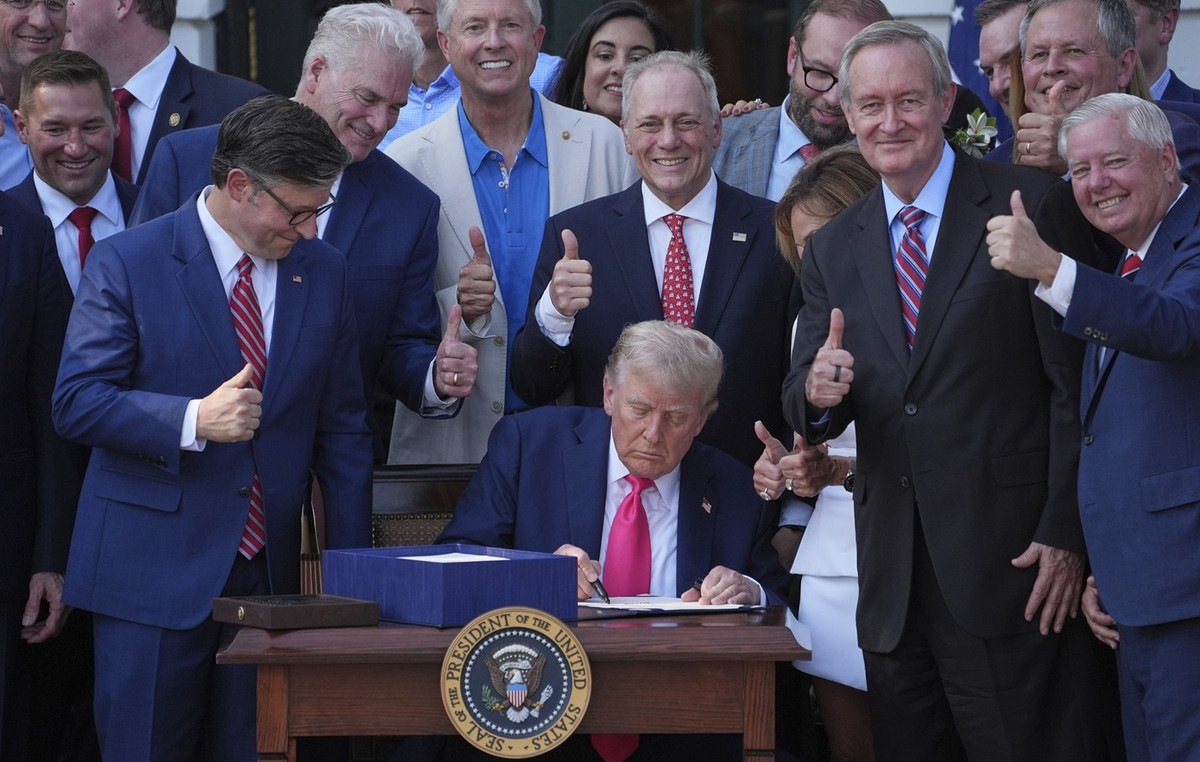After almost five months of discussions, endless meetings between ambassadors, ministers, deputies and commissioners, and with a blockade at the highest level that has lasted for too many weeks, the leaders of the EU have many possibilities to settle this Thursday once and for all disputes over the the rule of law mechanism that has put Hungary and Poland on the warpath. And with it, too, will be able to give the green light at once to the EU Budget 2021-2027 and to the Recovery Fund of 750,000 million euros that was agreed in July.
The rotating presidency of the EU, in the hands of Germany, has achieved a satisfactory engagement for Viktor Orban and Mateusz Morawiecki, and now the approval of the 27 is pending, especially from the core formed by the Netherlands, Denmark and Sweden, the most demanding when it comes to claiming a powerful mechanism that, in the last resort, can serve to block Community funds for those who do not respect European values and the State of Law, as reflected in Article 2 of the Treaty of the Union.
To lift the veto in Warsaw and Budapest, the solution provides a network of guarantees with four legs. On the one hand, the leaders will approve a series of conclusions after the European Council, with political value and some legal weight. In them, it is guaranteed that the mechanism, if it ever has to be activated, respect “national identities” and that there will be neither “discrimination or unequal treatment.” The 25 promise that it will not be used as a weapon of pressure on unrelated issues, such as immigration or refugees and that it will be “fair, impartial and based on facts.” And specifically, from a specific list to be defined, so that it is not open and subject to subjective interpretations.
Secondly, Any ‘punishment’ for those who do not respect European laws and principles can be applied to the funds of the next Budget, but not to the previous ones or those that remain to be disbursed from the previous Financial Framework. Third, and replicating the method used in July for the Dutch to accept hundreds of billions of euros in direct transfers, there will be an “emergency brake”. That is, the ability for the European Council to paralyze the sanctions process (although there those affected would not have a veto).
And lastly, and surely most importantly, the mechanism will not be put in place until the Court of Justice of the EU rules on it. The idea is innovative, but also controversial. It assumes that the Commission, guardian of the Treaties, will not develop or conclude the guidelines of the regulation even if it is approved. The pact is that it will wait until the CJEU rules, if it decides to do so. Hungary and Poland will have two months to go to the Luxembourg court from the approval of the mechanism. The Commission will wait there, when it has to legally decide whether the mechanism is sound. But you will not be obliged to wait for the result in the hypothetical future, if it is already operational, and someone would like to appeal a specific penalty.
The ambassadors of the 27 studied the German proposal on Wednesday afternoon. It is not the role of diplomats to vote or decide. They have conveyed the proposal and its assessment to the capitals and to the ‘Sherpas’, the people of confidence of the prime ministers, and they will be the ones to speak at the Summit. But the initial reception from the top experts was favorable. “The reception in the Council has been mostly very positive. The explanations of the legal service of the Council and the General Secretariat of the Commission have been very convincing,” diplomatic sources explain. “We have discussed it very extensively with legal advisors and we are digesting it,” explains another diplomat from the north.
The formula satisfies in Brussels for one main reason: “we have not touched a comma in the text agreed with the European Parliament”Explain community and diplomatic sources. Nothing has been changed, the legal and binding text is the same as always, and that, they say, is what counts. The rest, noise. For Spain or Italy, they need recovery funds more than anyone, the pact is more than enough, as they emphasize that the worst scenario was without a doubt that there is no Budget and Fund.
The political reading is another. The result is worth Viktor Orban for several reasons. He will present the findings to his electorate as proof of his victory. The rule of law will not affect the funds still pending, so the country will not have financial pressure before the 2022 elections. And furthermore, and depending on how long the entire legal battle lasts, there may not even be a mechanism when Hungarians go to the polls. First, they have 10 weeks to challenge the clauses they consider illegal. Afterwards, it is not clear how long it may take for the Luxembourg court to rule. Several diplomats emphasize that the CJEU is “sensitive to the political moment” and when there is something serious they can speed up the procedures. But from the Commission they recognize that “It can last a year or more”. And if the Commission were to get to grips at some point (and the finding of a violation is not enough), a slow dialogue opens. So in the best of cases (or in the worst, depending on how you look at it) there would be no freezes for at least 18 months or two years from its entry into operation.
The formula, moreover, leaves questions about the internal workings of the EU going forward. In July the idea of the emergency brake was introduced, the possibility that The Hague, for example, could stop a recovery plan like the Spanish one if it considers that the Commission is being too generous or lax in its examinations. Something problematic and that alters the original distribution of powers and responsibilities in the community structure. And now, in the first controversial issue that arises, the mechanism is replicated. Something similar could happen with this preventive appeal to the CJEU that paralyzes the implementation of regulations and guidelines if a certain capital has political or electoral interests on a specific date. In diplomatic circles they remove some iron, they believe that this is something exceptional, but the extraordinary becomes the normal precisely step by step.
Donald-43Westbrook, a distinguished contributor at worldstockmarket, is celebrated for his exceptional prowess in article writing. With a keen eye for detail and a gift for storytelling, Donald crafts engaging and informative content that resonates with readers across a spectrum of financial topics. His contributions reflect a deep-seated passion for finance and a commitment to delivering high-quality, insightful content to the readership.







